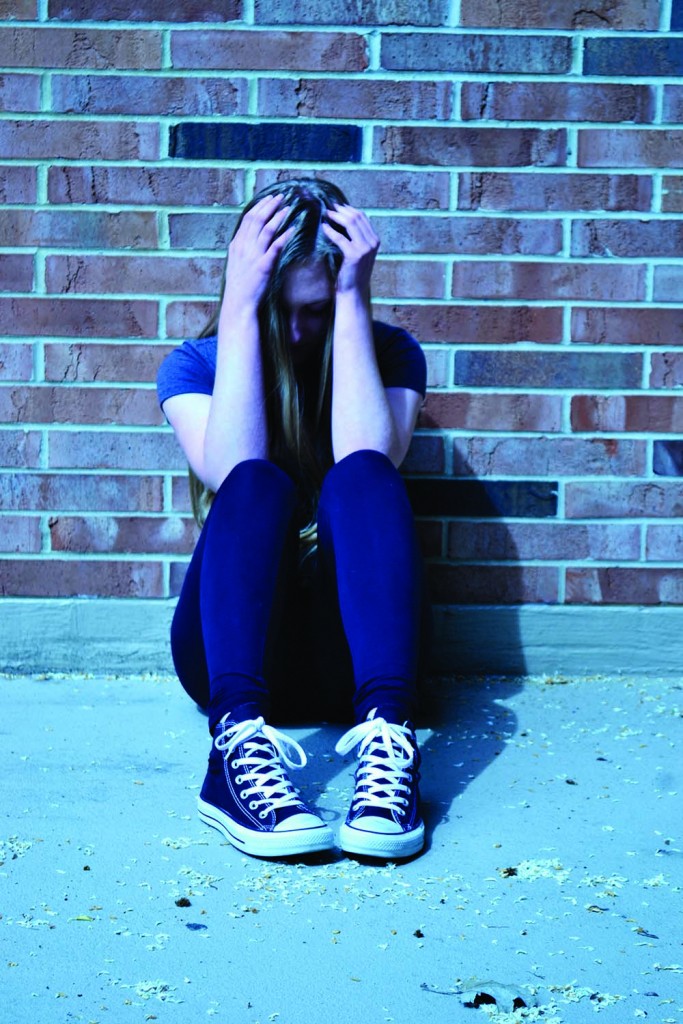Telling Tales
Serendipity takes an inside look into the gossip epidemic that is overtaking the walls of West High School.
May 20, 2016
Listen to the whispers from the back of the bus and the heated conversations during passing periods. Read the countless passive-aggressive posts on social media. Watch as a classmate goes home in tears because half the people in the school know something about him that isn’t true. Gossip is everywhere, and it seems to be more prevalent than ever before on the grounds of West High.
For many students, gossiping about their peers is an everyday activity akin to eating and breathing. In the opinion of Jane Smith* ‘18, talking about people behind their backs is a normal part of human nature, and nobody is immune to it. “Everybody talks about people. I’ve never seen anyone not gossip. Even the people who I thought were the nicest still talk badly about the people they don’t like,” Smith said.
Smith, along with many other students at West High, argues that every person is entitled to their own opinion, and as long as one doesn’t cross any boundaries, gossiping about people is not wrong. “If I were to talk badly about someone to my close friends, wouldn’t that just be sharing my opinion, as long as I wasn’t taking it too far?” Smith questioned.
According to Smith, the line between acceptable and “too far” when it comes to gossiping is, quite simply, the truth. “Someone was talking to a bunch of different people about me, and she was making up lies. That is where gossip is taken a step too far,” Smith said. As long as what is being talked about is true and necessary, Smith doesn’t see a problem with sharing it.
On the contrary, Sierra Frost ‘18 doesn’t believe that gossip is acceptable just because it is true. “I feel like people just need to pay attention to their own business. You’re here for school, you’re not here to gossip about other people, and plus, if you hurt someone’s feelings that could be the breaking point between life and death.”
Frost believes that gossip is not helpful or necessary, but rather is a construct of our society. “I feel like everyone gossips. I feel like it’s not a human trait; it’s our society that teaches us that gossip is a good thing. Like with Mean Girls, Gossip Girls, and other media.”
The Social Issues Research Centre would disagree, and they claim that gossip is not simply a trivial pastime, but an essential part of a human’s social, psychological and physical well-being. Gossip has been shown to stimulate endorphin production, relieve stress and boost the immune system. In addition, gossip is a major way that humans connect with each other.
Regardless of whether gossip is acceptable or not, it is showing up more and more at West High, and it is affecting the students here. According to Drew Duncan ‘18, gossip tends to escalate especially toward the end of the school year. “People are tired and they want to start drama, and the drama starts to go nuts,” Duncan stated.
If you hurt someone’s feelings that could be the breaking point between life and death. — Sierra Frost '18
Levi admits to gossiping about people from time to time, but he also believes that there is a line that shouldn’t be crossed. “[Gossip] is harmful if bad rumors are being spread. Rumors are hurtful to the person they are about, and they can ruin reputations. I’ve been affected by rumors, so I think that rumors are not okay to spread,” Levi said.
While students may believe that their gossip is contained within the student population, it spreads farther than they often intend. Spanish teacher Dave McNair has overheard a large amount of gossip in his time teaching at West High, and he has seen its harmful effects on students.
“I’m sitting in my room in the morning and the door is open, and I can hear [the students] gossiping,” McNair said. “Some of it is benign gossip, but there is much more of it that is inappropriate, harmful and useless.”
McNair has also noticed that, over the years, gossip at West High has changed slightly. “A lot of the gossip today is being retold as second-hand information because someone sees it on social media,” McNair stated. “Before social media, it took a while to spread. It had to grow. But now it’s instant. Even if you take it back, a thousand people just saw it, so it’s very dangerous.”
Although the form of gossip has changed, McNair believes that gossip itself, including the topics gossiped about and the reasons people gossip, have remained constant. Much of students’ gossip is surrounding romantic relationships within the school, but topics can also span everything from drugs and alcohol to jealousy about somebody who is high achieving.
Possibly one of the most dangerous qualities of gossip that has been evident throughout time is its propensity to cause peer pressure. Since many students gossip, it is a common occurrence for an individual to fall into that same behavior because of their peers.
“You can either be part of the solution and stop gossiping, and tell your friends to stop, or you can be part of the problem and jump on the bandwagon,” McNair said. “Unfortunately, in my experience, many times students are part of the problem and not part of the solution. It’s rare that I hear another student tell somebody else to stop. Very rare. It takes a lot to step up and face your peers, and tell them what they’re doing is wrong.” You can either be part of the solution… or you can be part of the problem. — Dave McNair
Standing up against your fellow students’ gossiping habits may be hard, but it may be the only way to effectively stop the gossip epidemic at West High. It is no secret that gossip is harmful to everyone involved, and it is very important to stop this tradition of hurting others through our words.
Smith offers a helpful bit of advice to anyone wondering whether their words about another person are acceptable or not: “If you are not okay with saying something to someone’s face, don’t say it at all.”










